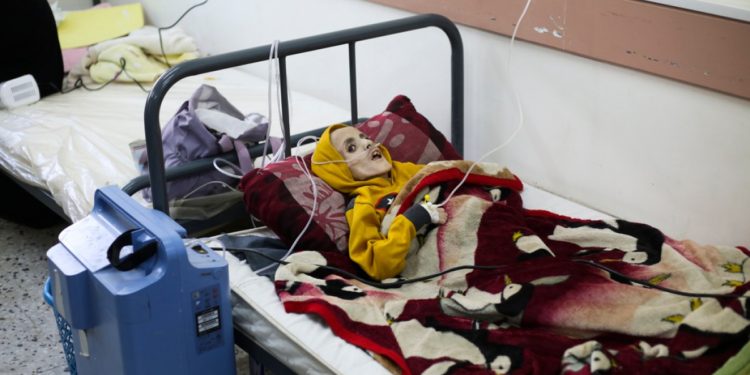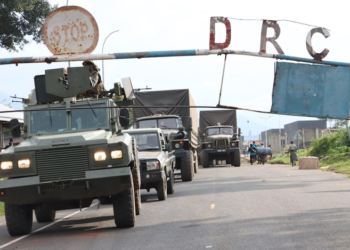By AL JAZEERA
Countries have called for Israel to obey an International Court of Justice order to allow the unimpeded delivery of aid into Gaza, where famine has set in, as it continues to flout a United Nations Security Council resolution demanding an immediate ceasefire in the enclave.
Judges at the UN’s top court, which is examining South Africa’s charge that Israel is committing genocide, unanimously delivered a legally binding ruling on Thursday that Israel should “take all necessary and effective measures to ensure, without delay … the unhindered provision … of urgently needed basic services and humanitarian assistance” in Gaza.
South Africa’s presidency welcomed the order, a provisional measure in its genocide case.
“The fact that Palestinian deaths are not solely caused by bombardment and ground attacks, but also by disease and starvation, indicates a need to protect the group’s right to exist,” it said in a statement.
Echoing the judges’ ruling, the presidency said the only way for Israel to fulfil its responsibilities to prevent genocide would be to adhere to the court’s directives and to halt military operations in Gaza.
SOUTH AFRICA WELCOMES ADDITIONAL PROVISIONAL MEASURES ORDERED BY THE ICJ
The International Court of Justice (‘the Court’) has granted South Africa’s Urgent Request of 6 March 2024 for further provisional measures to prevent Israel from causing irreparable harm to the rights…
— The Presidency 🇿🇦 (@PresidencyZA) March 28, 2024
Earlier in the week, the UN Security Council passed a resolution calling for an immediate ceasefire for the Muslim fasting month of Ramadan and the release of all captives seized in the Hamas-led attack on southern Israel on October 7.
Belgium praised the ICJ measure and said “Israel must stop starving civilians and children”. Caroline Gennez, the minister of development cooperation and urban policy, posted on X that Israel’s use of “hunger as a weapon of war” was a “flagrant violation of international law”.
Amnesty International said the World Court highlighted “the continuing catastrophic deterioration” in the situation in Gaza, noting that the order had come days after Israel blocked aid convoys from the UN Relief and Works Agency for Palestinian Refugees in the Near East (UNRWA) from entering northern Gaza.
“This new ruling must serve as a critical reminder to all states of their clear duty to prevent genocide which requires them to ensure that all of the ICJ’s provisional measures are duly implemented,” the rights group said on X.
🧵 Today’s decision by the @CIJ_ICJ to order additional provisional measures in South Africa’s genocide case against Israel highlights the continuing catastrophic deterioration of conditions & the growing threat to Palestinians in occupied #Gaza since the ICJ’s last ruling.
— Amnesty International (@amnesty) March 28, 2024
Israel’s Ministry of Foreign Affairs claimed that it was “committed to international law” and “places no limitation” on the amount of humanitarian aid allowed to enter the enclave.
In a post on X, Foreign Ministry spokesman Lior Haiat blamed “operational challenges” on the ground to delivering aid and Hamas for its “abhorrent efforts to commandeer, hoard, and steal aid” as reasons for current shortages that have already caused the deaths by malnutrition and dehydration of at least 31 people, including 27 children.
Aid agencies and top UN officials have repeatedly said that Israel has deliberately blocked critical humanitarian supplies from reaching Gaza while bombarding the territory and besieging its few remaining hospitals.
With malnutrition among children soaring, the UN’s World Food Programme (WFP) said Israel needed to “surge” humanitarian relief into Gaza or there would be starvation.
“The is nowhere else in the world where so many people face imminent famine,” WFP’s Palestine country director Matthew Hollingworth said, noting that Gaza City is the “epicentre of the crisis”.
Only 11 convoys of WFP food aid have reached the north of the Palestinian territory since the start of this year, the agency said.
‘No more international law’
The ICJ order was not likely to increase the amount of assistance flowing into Gaza unless a ceasefire is reached, analyst Marc Owen Jones told Al Jazeera.
“After the last ICJ provisional measures [in January], the amount of aid entering Gaza actually decreased,” the Middle East expert at Hamad Bin Khalifa University said. “Just because the ICJ have put this ruling forward doesn’t necessarily mean Israel is going to comply.”
He said only a ceasefire would lead to a spike in aid, adding that “otherwise, I’m afraid Israel’s response will just be rhetoric”.
Palestine’s foreign ministry said the ICJ ruling indicated Israel had “committed heinous crimes”. Nations had to “compel Israel to implement the court’s interim measures, to prevent the genocide of the Palestinian people, hold Israel and its officials accountable for this crime, and hold them accountable for the consequences”, it said in a statement.
Yet, Israel’s Prime Minister Benjamin Netanyahu told relatives of soldiers held captive in Gaza that only military pressure would secure their release and the army was “preparing to enter Rafah”, in the southernmost tip of Gaza where about 1.5 million displaced Palestinians are sheltering.
Mustafa Barghouti, general-secretary of the Palestinian National Initiative, said Israel would not stop its assault until sanctions were imposed.
“Netanyahu wants to proceed with this terrible war, and he is now even promising a much bigger massacre by attacking Rafah,” he told Al Jazeera, adding that the muted response from Western governments, with many “providing protection to Israel”, sent a message that there was “no more international law”.







Discussion about this post